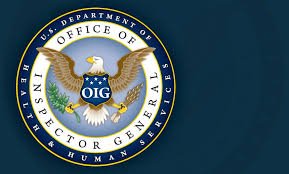Inpatient audits once again take center stage with the Centers for Medicare & Medicaid Services (CMS). The Office of Inspector General (OIG) has published a new Work Plan item focusing on assessing inpatient hospital billing for Medicare. The new Work Plan item is a two-part study:
Part 1: The first part of the study will consist of analyzing Medicare claim data which will provide detailed billing practices for hospital claims.
Part 2: The second part of the audit will result in target audits among certain hospitals or codes based on the part 1 analysis.
We have seen over the years OIG starting audits as a nationwide general audit inquiring looking at data followed by probe audits of hospitals. There are many audits that have followed this course.
Billing Outpatient Right Heart Catheterizations with Heart Biospies – In March 2017 the DHHS-OIG issued report A-01-13-00511, summarizing their findings in which 92 of 100 claims did not support proper billing. The errors occurred because hospitals incorrectly considered the biopsy as a separate procedure from the heart catheterization. This OIG audit was placed on their annual Work Plan in 2015, two years later followed the general report then came the targeted audits in 2019.
Based on the general audit of data resulted in the OIG conducting several probe audits among hospitals across the county. Their findings results in several millions in overpayments:
Medicare Inappropriately Paid Acute-Care Hospitals for Outpatient Services they Provided to Beneficiaries Who Were Inpatients of Other Facilities – In September 2017 the DHHS-OIG issued report A-09-16-02026, identifying acute care hospitals were incorrectly paid for outpatient procedures for patients classified as inpatient. Inpatient beneficiaries may receive outpatient services at an acute care hospital during their inpatient stay. Medicare pays those services under the DRG to the facility where the beneficiary is inpatient and separate payments to the acute care hospitals are not payable.
This followed several audits of acute care hospitals resulting in millions of dollars in overpayments.
Inpatient Rehabilitation Facility Stays Did Not Meet Medicare Coverage And Documentation Requirements – In September 2018, the DHHS-OIG issued report A-01-15-00500 identifying approximately $5.7 billion for Inpatient Rehabilitation Facilities (IRFs) was not reasonable and necessary.
As a results, several OIG probe audits swept across the country recovering millions among numerous hospitals.
CMS Did Not Adequately Address Discrepancies In the Coding Classification For Kwashiorkor – The DHHS-OIG conducted an audit based on claims data issuing report A-03-14-0010, in November 2017 identifying over $6 million in overpayments.
The results of incorrectly coding Kwashiorkor disease resulted in extensive audits across the country and implementation of edits with payors. This disease is extremely rare in the United States and was continually coded incorrectly.
These are only a few of many two part audits conducted by the OIG over the years. When handling audits, particularly, those of greater risk should be leveraged with the skill and expertise of reimbursement attorneys. Running audits in risk areas should be handled carefully and under guidance of legal counsel. Rivet Health Law, PLC is lead and managed by attorneys who know how to code, audit, and run coding audits and reducing exposure to clients.

